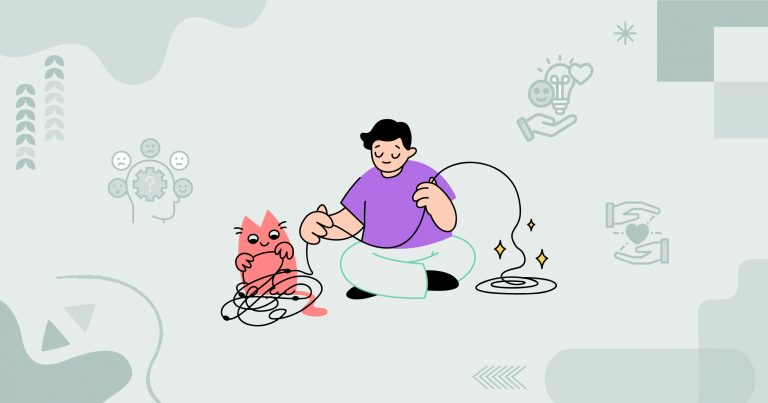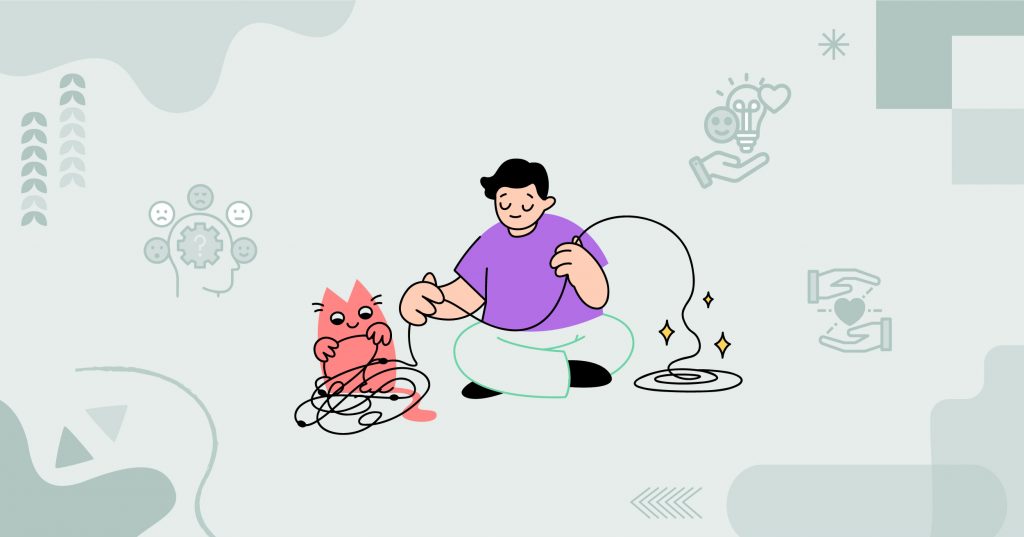Emotions can be tricky. They sometimes make us laugh in challenging situations, while other times they bring us to tears as we reminisce about the good times spent with friends and family.
Have you ever thought about why it happens?
Why are emotions so unpredictable?
And even if they are, is there a need to understand them in depth so we can manage them better and smoothly sail through life?
It is important that we pay due attention to how we feel (at certain events) and what triggers our emotions. Once we are observant enough to know how it works, it is important that we learn to process our emotions from time to time, as opposed to snubbing them, disregarding them, or rejecting them altogether.
The Science of Emotions
The emotions that we experience are generated in our mind, typically in the limbic system, which includes the amygdala and hippocampus. The amygdala is responsible for generating emotional responses, whereas the hippocampus contributes to forming emotional memories.
🎭 Interesting Fact: |
When we are triggered and throw our emotional response at someone, what happens behind the scenes is that our amygdala takes over and makes us react in the heat of the moment before our rational mind can process it.
This is why you’ll often hear the advice that you must never react when charged with emotions like anger, frustration, aggression, and so on.
Reflective Exercise:
Sit and contemplate about the people, situations, and events that have been your emotional triggers.
How to Manage Your Emotions
The best way to balance your emotions is to identify the triggers. Try to observe and identify the triggers that cause the rush of emotions within you. These are the points of control from where you could reverse the game. Once you bring into awareness the triggers that poke you to react, you can actually do something about it.
Here’s an example to explain it better.
Let’s say you are concerned about your anger issues. Every time a person yells at you, you tend to lose your temper—without even analyzing the complete truth of the matter. You feel powerless to this trigger and want to resolve this emotional turmoil.
Now, here’s what you can do about it. The next time you find yourself in the same situation, try to consciously interfere and stop yourself from being reactive.
Find yourself a quiet corner to enter contemplation mode. Begin with nursing your emotional state, and try to identify what is beneath the cover that is making you furious about the situation.
Is it the feeling of powerlessness, a feeling of shame or guilt for not meeting people’s expectations, or any other emotion that is making you resistant to a loud voice or tone? And when you are able to tap the exact emotion, you can deal with it gradually to eradicate this issue from its root.
To bring emotional awareness into place, it is important that we first recognize the emotional triggers and then start working on them. Streamlining our emotions would not only put us in charge of our emotions but will save us from the regret and embarrassment we feel after throwing our reactions in our impulsiveness.
Interactive Quiz:
1. Do you easily get overwhelmed by your emotions? Yes/No
2. You often miss out on the specific triggers that cause strong emotional reactions. Yes/No
3. It takes a long time to calm yourself down after emotional turmoil. Yes/ No
If the answer to most of the questions was ‘Yes’, you need to spend time with yourself to understand your emotional dynamics.
Effective Strategies to Regulate Our Emotions
#1: Invest in Self-Care Rituals
If you are committed to doing the groundwork and gaining emotional intelligence, it is crucial that you invest your time and energy in performing self-care rituals. It could be taking care of your physical health or taking steps that empower you psychologically. By doing so, you set an intention and indulge in behaviors that are beneficial for your growth. Also, eating healthy and indulging in regular exercise will help you remain in control of your physical, mental, and emotional health.
#2: Focus On Processing Your Difficult Emotions
Whenever you face situations where you become overwhelmed by your emotions, try to take some time and process it with calm and ease. Never ever suppress, deny, or bulldoze your emotions. The more you remain warm and gentle towards your emotions, the more likely you’ll be able to bring them into harmony. In any situation where your hard emotions are brought to the surface, try to bring resolve by being calm and non-judgmental towards them.
👉 Pro Tip: If you are clueless about doing the emotional groundwork, you can start your practice through guided meditation sessions to improve your emotional state.
#3: Include Physical Workouts in Your Routine
According to a study published in the American Journal of Psychiatry, regular aerobics can reduce the symptoms of depression and anxiety by 30%.
Never underestimate the power of including physical workouts in your daily routine. It’ll help you remain fit on your physical front—benefiting your mental and emotional health. Your physical health has a direct link with your emotional health. You’ll never be able to keep yourself emotionally grounded if you are not healthy on the physical front.
#4: Accept Your Emotions
Whenever we experience difficult emotions like anger, sadness, fear, guilt, and shame, our default response is often to push them away. In most cases, we become so overwhelmed by these emotions that we lack the direction to process them constructively. However, once we gain clarity and awareness on how to work through our emotions, it is important to accept them completely—dropping our opinions and judgments to one side. When we do this, we can navigate through them more smoothly and without any hassle.
👉Pro tip: Practice mindfulness. It helps you stay non-judgemental towards your emotions and increases your emotional quotient as you practice being still and calm.
#5: Consider Maintaining a Journal
If you find it difficult to navigate through your emotions, start by maintaining a journal. It’ll lend you big-time support in venting out your emotions and will help you gain thorough mental clarity. You can buy a wellness journal and make it a daily habit to get in tune with your emotions. Also, it is a great tool for self-exploration and spending quality time with yourself.
#6: Indulge in Positive Self-Talk
The self-image we carry depends on what and how we speak to ourselves in our minds. If we want to take charge of our emotions, it is important that we establish a strong relationship with ourselves. Speaking positively in our minds and conducting a positive talk where we stand in support of ourselves as opposed to criticizing and belittling ourselves, is how we step into our power to channel our emotions in the right direction.
Quick Question:
Once you find yourself in a difficult situation, take a moment to look inside and notice how you are talking to yourself. Are you reaffirming that you’ll soon be out of the situation, ridiculing yourself for being in this situation in the first place, or imagining a negative outcome of the situation you’re in?
#7: Seek Professional Help
If you feel that you are experiencing a heightened emotional response and the above-mentioned tips and strategies are not providing you any help, it’s time to seek professional assistance. In such instances where there is emotional disbalance to the level of being suspected of health conditions like bipolar disorder, borderline personality, etc., consider visiting a professional therapist.
Final Reflection
Emotions are accurate reflections of our personality. Learning to manage them over time is a great skill to master. When we pay attention to our emotional responses and work on our emotional triggers, there’s nothing we can’t conquer. Additionally, regulating our emotions and gaining mastery over them is a lifelong process. We need to approach it with patience and compassion, and we’ll not be far from enjoying total well-being and fulfilled relationships.
Sources:
- Abigail Rolston, Ba & Elizabeth Lloyd-Richardson, PhD, Cornell University: What is emotion regulation and how do we do it?
- University of California San Francisco Parnassus Campus: Why Learn to Observe and Describe Emotions?





















